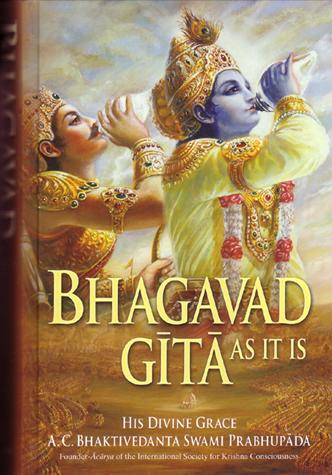Jyeshtha Shukla 10, Kaliyug Varsha 5114
 |
Moscow
: After strong protest of Hindus in Russia, Russian prosecutors have decided to withdraw their demand seeking ban on a translated version of Bhagvad Gita. State prosecutors in the Siberian city of Tomsk will not challenge a lower court decision to refuse to declare the translation of the Hindu scripture as "extremist", RAPSI legal news agency reported.Vasily Voykin, a regional prosecutor, was quoted as saying by RIA Novosti on Tuesday that the Prosecutor’s Office will not appeal the court’s decision.
The Tomsk Region Prosecutor’s Office had initiated the case in June 2011 following its inspection of the Tomsk Society for Krishna Consciousness.
They had claimed that the text of “Bhagavad Gita As It Is” a translation and commentary on the original scripture was "extremist" literature full of hatred and insult to non-believers which promoted social discord.
The petition has already been dismissed by two courts.In December last year, the Tomsk District Court refused a request to declare the book extremist, as it found no grounds to satisfy the lawsuit. The prosecutor’s office did not appeal the decision, but the Tomsk Region Court upheld it without amendments on March 21.
The case had drawn a flurry of criticism from Hindus across the world.
When the petition was dismissed by the lower court in Tomsk in December last year, India had welcomed the verdict as a "sensible resolution of a sensitive issue".
External Affairs Minister S M Krishna had asked the Russian government to help resolve the issue quickly. Hindus have welcomed the decision of Russian prosecutors.
Hindu statesman Rajan Zed, in a statement in Nevada (USA) today, said that it was a “step in the right direction”.Zed, President of Universal Society of Hinduism, thanked the Prosecutor’s Office for the decision saying that it was a right and sensible move befitting a democratic, open-minded and pluralistic society.
Rajan Zed said that Bhagavad Gita was one of the holiest scriptures of Hinduism and banning it would have deeply hurt the devotees. No faith, larger or smaller, should be maltreated, Zed said.Zed noted that attempt at banning Bhagavad Gita was apparently an attack on religious freedom and belittling of the entire community.
Rajan Zed stressed that this philosophical and intensely spiritual poem, often considered the epitome of Hinduism, was highly revered by Hindus.
Besides being the cornerstone of Hindu faith, Bhagavad Gita was also one of the masterpieces of Sanskrit poetry and a world treasure and had been commented by hundreds of authors and translated into all major languages of the world.
Bhagavad Gita was first published in Russia in 1788 and since then it has been republished many times in various translations.
Source : Newsbharati




